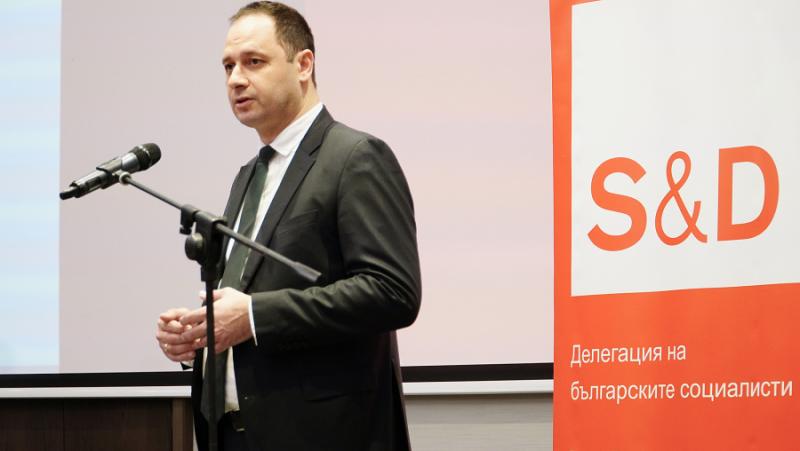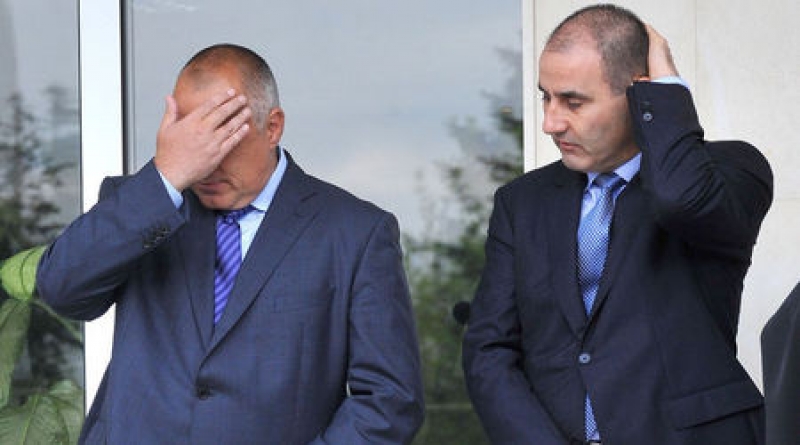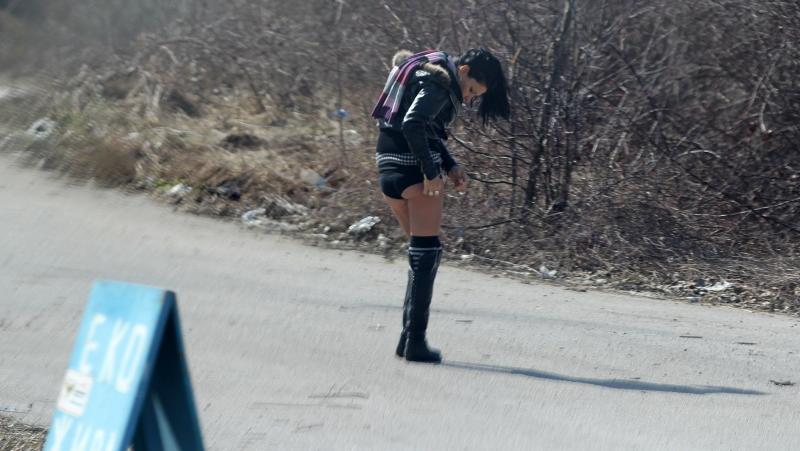/ world today news/ Over 18% of young Bulgarians aged 15 to 30 they neither work nor get an education, and this creates a big challenge not just for the education system, for the labor market, but for the economy and politicians. This was said by the head of the Delegation of the Bulgarian Socialists in the European Parliament, Petar Vitanov, during the round table “Work for the young, the young at work”, which was held in Sofia. Deputy Prime Minister Atanas Pekanov, Ministers Krum Zarkov, Sasho Penov and Vesela Lecheva took part in the discussion, Deputy Minister Prof. Dr. Emil Mingov, representatives of institutions and youth and student organizations, trade unions, employers and the non-governmental sector.
“Every day that we do not take measures to overcome this challenge, we contribute to poverty, social stratification and social exclusion of vulnerable groups,” Vitanov said.
“Bulgaria in recent years has faced a cascade of crises – financial, economic, health, but we also have another one – a demographic catastrophe, which is characterized by a decrease in the birth rate and high emigration rates, which create a major problem for the workforce,” he added Vitanov. .
The political apathy of young people is also particularly worrying, the MEP pointed out.
“Young people don’t vote because they don’t feel represented or see their role in the political process,” he commented.
In a global context, the labor market is changing at an extremely high speed, technological developments and innovations are emerging, said Atanas Pekanov, the Deputy Prime Minister for the management of European funds. This will be the 21st century – a century of challenges, of new competencies that we must acquire every single day, he commented. Pekanov pointed out that with each passing day, we must work to ensure that young people have access to these competencies.
We must not forget something that will be necessary for all of us – the ability to learn for life, said the Deputy Prime Minister.
According to Justice Minister Krum Zarkov, the political elites are not willing to give up their place on their own.
It is the young people that we must rely on to unlock the political crisis we are in at the moment, because the previous ones failed, he added.
Zarkov noted that political participation should be considered through three indicators. According to him, it is not just about voting, first you have to have interest, then there must be activism, and here is the role of political parties. If we do not go and knock on the doors of these parties, we will continue to live in the current context and statistics, he addressed the youth.
“Youth policy is not kindergartens and policy for adults is not pensions, it is a far more complex process,” said Zarkov.
The tendency at the moment is for children to stay in Bulgaria to complete their first bachelor’s degree here and then through the master’s degree to see foreign experience as well, said the Acting Minister of Education and Science, Prof. Sasho Penov.
“Of the enrolled students, 60% graduate, the others give up because they don’t want to study,” the Minister of Education pointed out.
More than 140,000 young people are not employed and do not participate in any form of training, said Deputy Minister of Labor and Social Policy Emil Mingov. According to him, this is a huge reserve, the question is to be able to move it. We are faced with a heterogeneous mass of young people who do not work and do not study, he pointed out and added that some of them are in a vulnerable position, including the Roma community, but there are others who, despite everything, do not want to work. Regarding the first group, the deputy minister said that a model of centers is currently being developed in the Roma communities themselves, where to find out what can activate young people to work and how to change the current practice, where some people work irregularly and at the same time they receive social benefits.
Youth policies are a long process, the most important thing is to have a constant dialogue with young people regarding their wishes and opportunities, according to the Minister of Youth and Sports Vesela Lecheva. She assured that the Ministry of Youth and Sports is focused on maintaining a constant dialogue with the authorized structures that are responsible for youth policy. Together with them, a number of changes in regulations and legislation were made.
According to a nationally representative survey by Trend, presented by sociologist Evelina Slavkova, 88 percent of respondents believe that there should be more government policies aimed at unemployed youth. When asked whether there should be specific policies towards young people – 86 percent answered positively. About 60 percent of the respondents believe that the education system does not sufficiently prepare young people to find a job, 25 percent are of the opposite opinion. 75 percentage points of those asked indicate low pay among the reasons why young people cannot find a job; bad conditions from employers and no contracts – 51 percent; 50 percent point to a lack of jobs; 48 percent note the lack of experience; 38 percent – lack of initiative to look for a job. 42 percent, mostly between 18 and 29 years old, answered that the state is obliged to provide work. Finding a job is a personal responsibility, according to 51 percent. When asked whether or not there are enough opportunities for realization, 33 percent of the recipients answered positively, while 55 percent were of the opposite opinion. 34 percent believe that there should be more opportunities for retraining, 13 percent – that a reform in higher education is necessary. According to 75 percent of those questioned, young people can find work only in big cities, and 56 percent believe that it is easier abroad.
In the discussion, Daniel Parushev, chairman of the National Representation of the Student Councils, drew attention to the fact that more and more unprepared young people enter higher education institutions, scholarships continue to be low, and the conditions in the majority of dormitories are not good. The lack of innovation of professors and assistants is among the reasons why students do not attend lectures and exercises, he pointed out. There is a lack of connection with business, enough paid internships for the student community. Bulgarian companies show little interest, but still, higher education in our country has grown a lot, Parushev also stated.
Ivaylo Iliev, chairman of the Student Club of the political scientist Sofia University “St. Client Ohridski” emphasized the low interest of young people in our country in politics, with a tendency towards an even greater decline. Weak civic education leads to low interest in politics in general, and parties should step into their role as intermediaries between the state and the people, the political scientist recommended.
To contact the Group of the Progressive Alliance of Socialists and Democrats in the EP:
Subscribe to our YouTube channel:
and for the channel or in Telegram:
#Petar #Vitanov #young #Bulgarians #work #education #huge #challenge #economy #politicians


